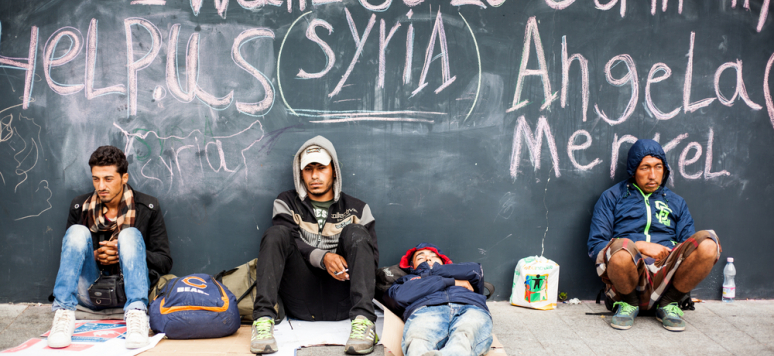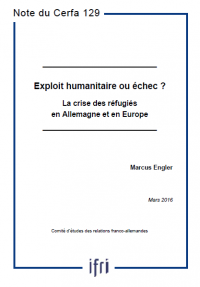
Humanitarian exploit or failure? The refugee crisis in Germany and Europe Note du Cerfa, No.129, March 2016

Dr. Marcus Engler is a social scientist. He has worked as a consultant at UNHCR and the Integration Commissioner of Berlin, as a research associate at the Expert Council of German Foundations on Integration and Migration (SVR).
This content is available in French and German.


